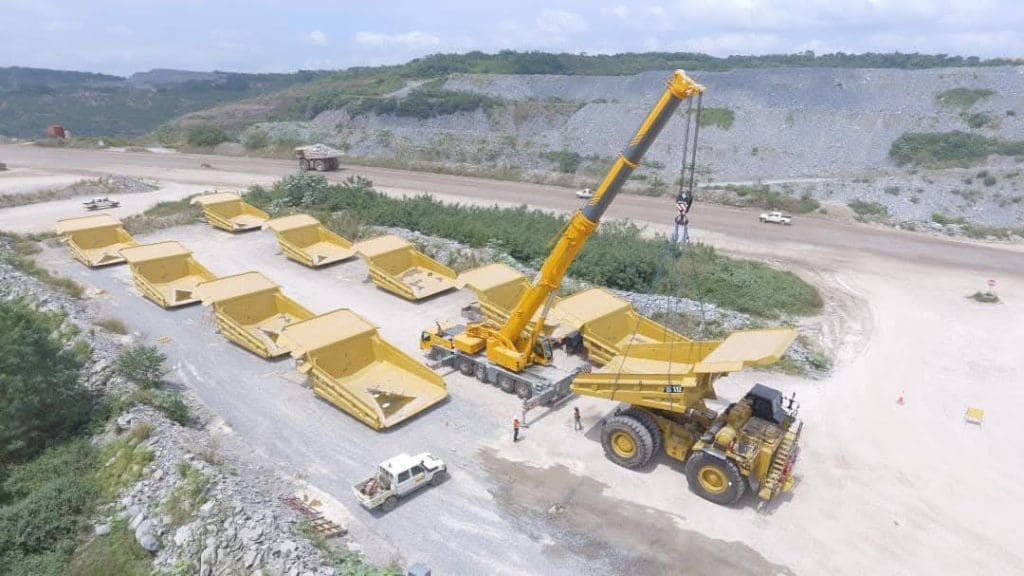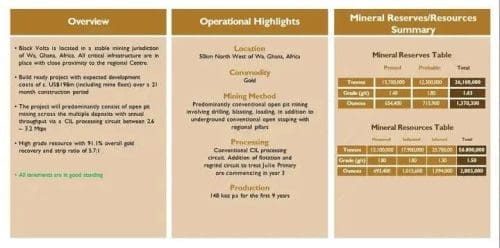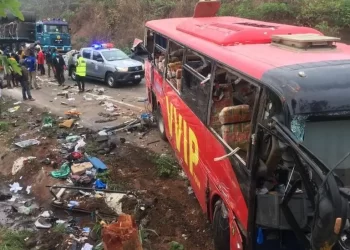Engineers & Planners (E&P), a Ghanaian-owned mining and construction powerhouse, has secured a $100 million Acquisition Facility Agreement from the ECOWAS Bank for Investment and Development (EBID) to purchase the Black Volta Gold Project—marking a historic milestone in Ghana’s extractive industry.
The deal, finalised at a signing ceremony in Accra, is poised to transform E&P into the first company to develop and operate a wholly Ghanaian-owned, large-scale gold mine in the country.
The $100 million EBID facility is structured to support not only the acquisition of the Black Volta Gold Project, but also the development of infrastructure, machinery, and workforce training required to bring the mine into full operation.
The Black Volta Gold Project, located in a mineral-rich zone of northwestern Ghana, is expected to generate substantial local employment and increase state revenues through royalties and taxes.
The Black Volta Gold Project represents one of the largest gold exploration positions in Ghana held outside of the major multinational mining companies.
Covering approximately 934 square kilometres under a combination of mining and exploration licences, the project boasts a significant secured land package with substantial upside potential.

Project highlights
Simplicity in Development: One of the key advantages of the Black Volta Mine is the straightforward nature of its development plan, making it an efficient and cost-effective project to bring into production.
Production forecast
The mine is expected to produce an average of 163,000 ounces of gold per annum over the first five years, and 148,000 ounces annually over the first nine years of operation.
Mine life
The project has an initial mine life estimate of 11 years.
Reserves and resources
Current estimates indicate a gold reserve of 1.37 million ounces and a broader mineral resource base of 2.8 million ounces.

Additional targets
The licence area includes multiple high-potential exploration targets that remain underexplored, offering significant scope for resource expansion.
Promising anomalies
A particularly strong gold anomaly has been identified north of Bepkong, extending over more than 8 kilometres—significantly larger than the footprint of the currently known deposits.
Depth extensions
The project’s geology suggests strong potential for deeper mineralisation.
Current drilling at Kunche has been shallow, with most holes terminating above 300 metres.
This presents a major opportunity to extend resources at depth, in line with similar gold deposits elsewhere in West Africa.

A new era for Ghanaian mining
Ghana, Africa’s top gold producer, has long relied on foreign multinational companies to lead its large-scale mining operations. The E&P-EBID agreement signifies a major step toward reversing that trend and placing Ghanaians at the centre of the country’s mining wealth.
“This is not just a financing deal—it is a reclaiming of national dignity in an industry that has for too long been dominated by outsiders,” said business magnate and former Ashanti Goldfields CEO Sir Sam Jonah at the ceremony.
Sir Jonah, a long-time advocate of Ghanaian ownership in the mining sector, described the event as “historic” and “a turning point” in the country’s economic and industrial journey.
“We are not merely here to witness the signing of a facility agreement. We are here to celebrate a milestone, affirm a vision, and embrace a bold new chapter in Ghana’s economic story—led not by foreign interests, but by our own,” he declared.
No favouritism, no cronyism—just merit
In his keynote address, Sir Jonah emphatically rejected any suggestions that E&P’s acquisition of the Black Volta Gold Project was politically motivated or favoured.
“Let us be clear: this is not a favour. This is not political patronage. This is not crony capitalism,” he asserted.
According to him, the transaction is a strictly merit-based, commercially viable agreement secured by a company with a solid track record, a sound balance sheet, and proven operational capacity.
He revealed that the deal had been quietly signed in October 2023, “with no fanfare, no interference, and no backroom dealing,” a move he said reinforces the transaction’s integrity and business credibility.
“This is the future we want to build—a transparent, Ghanaian-led mining industry that generates value for our people and not just for shareholders in distant lands,” Jonah said.
A dream realised
Sir Jonah paid glowing tribute to E&P founder Ibrahim Mahama, describing him as a visionary entrepreneur who had turned a bold idea into a national milestone.

“You are living out my dream. A dream I’ve held for decades. A dream that many believed was too ambitious,” he told Mahama.
Jonah recounted their first encounter in 1998 when a young Ibrahim Mahama sought his advice on entering the mining industry.
At the time, Jonah advised him to look beyond alluvial mining and focus on hard rock extraction, which he believed held more sustainable promise.
“That young man listened. He built a company. He earned the respect of the industry. And today, he has made history,” Jonah said, his voice thick with emotion and pride.
Local ownership as national strategy
Sir Jonah used the occasion to call for urgent policy reforms that promote indigenous ownership and deepen local participation across the extractive value chain.
Drawing parallels with South Africa’s Black Economic Empowerment (BEE) policies, he argued that Ghana must create a supportive environment for homegrown companies.
 “Our entrepreneurs are not lacking in talent. What they often lack is access: access to capital, access to opportunity, and access to policy support,” he noted.
“Our entrepreneurs are not lacking in talent. What they often lack is access: access to capital, access to opportunity, and access to policy support,” he noted.
He urged government and industry stakeholders to see the E&P-EBID deal not as an isolated success, but as a model for broader national transformation.
“Ownership matters. Equity matters. And national pride demands that we do more to ensure that our people are at the heart of our mineral wealth,” he stated.
Project expected to boost jobs and state revenue
The Black Volta Gold Project, located in an area historically known for its gold deposits, is expected to provide thousands of direct and indirect jobs in its development and operational phases.
With Ghana facing rising youth unemployment and underutilised natural resources, the project offers a timely opportunity to address both challenges..

Experts believe that increased local ownership in the sector could also reduce capital flight and improve accountability in resource governance.
According to E&P sources, the project will be developed using international best practices in environmental stewardship, community engagement, and value retention.
A portion of the revenue from the mine is also expected to be reinvested in local infrastructure and skills development programmes.
A blueprint for resource empowerment
In his concluding remarks, Sir Jonah urged Ghanaians to look beyond resource extraction and embrace resource empowerment as a long-term national goal.
“Let this be the dawn of a new era. An era where we don’t just extract for others, but build for ourselves. Let this not be an exception, but a blueprint,” he said.














